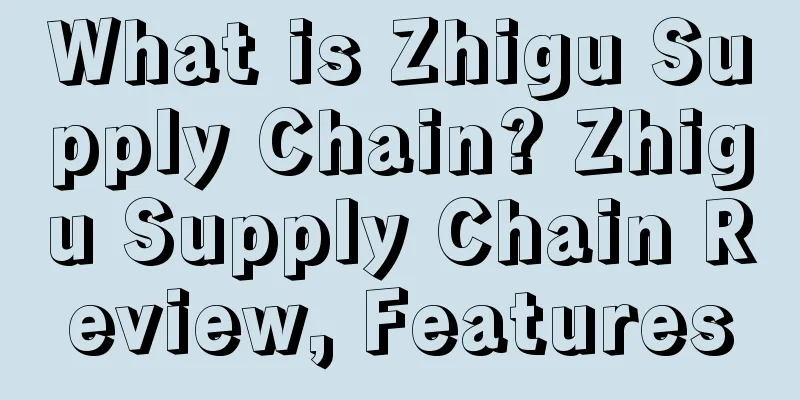Another company has been put under investigation, and many people have lost all their money after being defrauded!

|
Recently, criminals have been using cross-border e-commerce to commit fraud. Fraud in the name of "agent operation" has become a thing of the past. Now, some people have set up platforms to commit cross-border e-commerce fraud, with the highest amount reaching 2.76 million. At present, the case has been filed in many places.
Someone was defrauded of nearly 3 million yuan by a fake eBay authorized company
Want to make quick money through cross-border e-commerce and realize the dream of getting rich overnight, but get cheated. Have you ever come across a similar case around you?
Several sellers have revealed that they were deceived by a fake eBay authorized company and have reported the case to the police. Currently, the case has been filed in Henan, Sichuan and other places. The editor learned that many sellers have been defrauded by this company, and the amount of fraud ranges from tens of thousands to hundreds of thousands to millions, with the highest amount reaching 2.76 million. Many of these sellers had borrowed money.
These sellers all had something in common when they were defrauded at the beginning. They saw a cross-border e-commerce advertisement on the social platform, which introduced : drop shipping, 0 inventory, simple operation, step-by-step instruction, and the ability to open a store alone at home. The service also helps novices solve a series of problems such as supply, promotion, and store opening for free.
"Information gap and exchange rate difference" is the way the fraud company claims to make profits, "eBay's authorized company" is their external name, "up to 40%-60%, or even higher cross-border e-commerce profits" is one of their fraud gimmicks, and "no source model" is their usual fraud method.
They lure sellers through large platforms, high profits, guaranteed teaching and advertising, and money-making methods, and some sellers are tempted by what they have in mind.
When sellers are hesitating whether to join, the fraudulent company will use the platform's 0 deposit and 0 annual fee. Sellers who want to join only need to show their email address, ID card, and business license to apply to register an online store . The platform has a 3-month commission-free policy for novice sellers and other reasons to further guide sellers to join.
The process of joining the platform is very simple: the fraud company gives you a link and asks you to log in to your account and password according to their instructions, and then contact the supply chain to recharge the amount. This is equivalent to a seller registering his own store in this link.
During the process of joining, the fraudulent company will continue to release attractive conditions: "5% of the net profit will be paid as dividends every month, provided that the seller sells the products", "step-by-step instructions on uploading products", "We are responsible for providing products and promoting them", "We only make a profit from the price difference of the supply of products", in order to increase the weight of sellers in purchasing goods.
Fraudulent companies have a way: recharge the purchase amount and get cash back
In order to gain the trust of sellers, the fraud company was well prepared. It claimed to be an authorized company of eBay, one of the world's largest online trading platforms, and also showed the sellers the authorization certificate and business license.
Many sellers believed it, thinking that the other party was reliable and the cooperation model had low risks, and began to invest money to open online stores to do cross-border e-commerce, and opened their own stores in the website provided by the other party. In early April, the situation of sellers who had just opened stores was similar, with one or two orders every day, and the purchase cost was relatively low. No need to worry, just trade and earn profit difference, the sellers have tasted the sweetness.
However, it is worth noting that the seller's purchase cost needs to be recharged by contacting the investment manager. They will provide a link for the seller to recharge the purchase money. After the time node they specify, the money will be returned to the platform account. The seller confirmed that the initial withdrawal did exist. The company's fraudulent means are indeed based on this, laying a long line to catch big fish.
"During the May Day holiday, the number of orders suddenly increased. There were seven or eight orders, which converted into RMB was about 6,000 to 7,000 yuan per recharge," a seller reported. At that time, the fraud company also launched a recharge activity: recharge 10,000 yuan and get 588 yuan; 30,000 yuan and get 1,888 yuan; 50,000 yuan and get 3,888 yuan. The more you recharge, the more you get.
The number of promotions and orders surged, and the sellers felt something was wrong. How could there be a platform that gives away money after depositing money? Later, the sellers contacted the Shanghai eBay branch and found that the company's authorization was fake. When the fraud company found out that the seller knew it was a scam, it would shut down all the seller's information on the platform, and the seller could not open the online store to view relevant information.
Some sellers were relatively lucky and only lost a few thousand yuan, but some sellers lost everything.
After April 15, the seller Mr. Liu received many orders, and basically had to ship out 500,000 or 600,000 yuan worth of goods every day. However, this fraud company had a rule that the goods must be shipped within 24 hours, otherwise they would not accuse you of violating the rules. Mr. Liu had no choice but to raise money to ship the goods. He borrowed from friends, relatives, banks, and private loans, and borrowed a total of 2.76 million yuan, which he invested all at once.
It was not until April 18 that Mr. Liu realized he had been cheated when he saw the fraudulent companies and fraudulent methods published by the police on the Internet. According to Mr. Liu, there was no delivery video for these surged orders, only the order numbers were displayed, showing places such as Japan, South Korea, Singapore and Italy, but these addresses were all fake.
At this point, the seller’s hard-earned money has gone to nothing, and he can only hope that the police will recover the fraudulent money.
Fraudulent methods emerge in endlessly, but sellers still hold on to their hard-earned money
In fact, since the explosion of cross-border e-commerce in recent years, more and more merchants and capital have entered the market, and various fraud cases have also increased day by day. They take advantage of the information gap between China and abroad, and lure sellers into the scams they set up under the banners of "no need to stock up", "no foreign language required", "free training", etc.
Usually their tactics are as follows: 1. Spreading false advertisements on multiple platforms to attract sellers and have them contact them; 2. Guide them to download apps, register stores, etc.; 3. Gain the sellers’ trust by having their first order successfully make a profit; 4. As orders surge, sellers need to purchase large quantities of goods, and the purchase amount increases, so the scammers are draining the sellers’ wallets; 5. After the sellers’ funds are exhausted, they are prohibited from withdrawing cash, and the victim’s store is banned from sale on the grounds of not shipping on time, and a high deposit is demanded on the grounds of unblocking the store.
In addition, there are many cross-border e-commerce scam sellers that need to be taken seriously ↓
Scam 1: Maliciously substituting cross-border platform policies and using the platform’s buyer protection policies to defraud sellers of refunds. Scam 2: In order to quickly place orders and create a hit product, people purchase relevant information to improve operational capabilities, but in the end the money is transferred and the information is gone. Scam three: Taking goods to defraud money, registering multiple aliases, luring people with extremely low prices, and shipping the goods in batches of one piece and one box. Once you place the order, there will be no further news after the WeChat transfer. Scam 4: Helping to unblock accounts. Many sellers’ accounts are blocked but they don’t know how to unblock them themselves, so they ask others for help. Once the money is transferred, they are blocked.
Fraudulent methods are emerging in various forms, so sellers should keep their eyes open and raise their awareness of prevention to avoid being blinded by greed for money and falling into the trap of fraud. Cross-border e-commerce Scams No source |
>>: Amazon workers are going on strike, executives: It doesn't matter!
Recommend
Amazon's third-party brand acquisitions surge to India
Powerhouse91 was co-founded by Shashwat Diesh and...
Founded 13 years ago, with a market value of $15 billion, how does SHEIN make money?
SHEIN's clothes are priced as low as $3, but ...
What is Guaranteed Delivery? Guaranteed Delivery Review, Features
Guaranteed Delivery is a new feature that eBay wi...
What is Shenzhen Wuxiang Testing (Group) Co., Ltd. (Xiang Testing and Certification)? Shenzhen Wuxiang Testing (Group) Co., Ltd. (Xiang Testing and Certification) Review, Features
<span data-docs-delta="[[20,{"gallery"...
What is 1210? 1210 Review, Features
<span data-docs-delta="[[20,{"gallery"...
BigCommerce partners with Chargebee to grow subscription e-commerce
A subscription business is a business model that ...
A group of Chinese sellers with monthly income of millions of dollars had their accounts blocked
"Although the account blocking phenomenon in...
Home brand Sweet Furniture: Knocking on the door of hot products with the power of experts
Now, more and more overseas companies have found ...
94% of British consumers continue to shop online, and third-party sellers are popular
According to the latest survey by Mirakl, an ente...
What is Nanette Lepore? Nanette Lepore Review, Features
Nanette Lepore is an American brand founded in 200...
What is Yi Qianxing? Yi Qianxing Review, Features
Yiqianxing is a business management operating syst...
Russian fashion brand 12 storeez cooperates with e-commerce Farfetch to accelerate international sales
12s toreez is the first Russian designer brand to...
Hot sales changed fate! Entered the popular track and won the first place in the category
In recent years, with the development of the econ...
South Korea's online fashion platform Musinsa's sales exceeded 300 billion won, a year-on-year increase of 51%
According to the latest news, the sales of Musins...
A container ship collided with a ferry! Containers are suspected to be lost
According to foreign media reports, on March 12, ...









